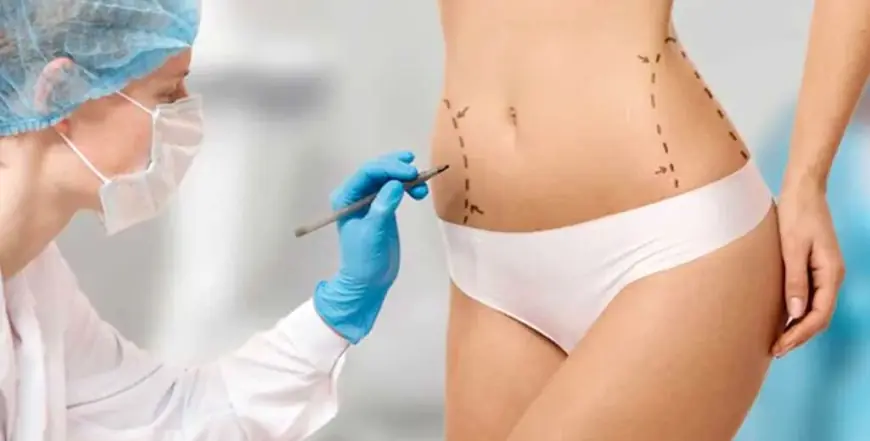Liposuction Procedure in Islamabad: Step-by-Step Overview
Understand the full step-by-step procedure of liposuction in Islamabad, from consultation to recovery, for informed and confident decision-making.

In the quest for a contoured body and enhanced self-confidence, liposuction has emerged as a reliable solution for many individuals in Pakistan’s capital. When considering a body sculpting procedure like Liposuction in Islamabad, understanding the detailed procedural roadmap is essential. This step-by-step overview is designed to help prospective patients know what to expect at every stage, empowering them to make informed decisions.
Step 1: Initial Consultation and Evaluation
The liposuction journey begins with a comprehensive consultation. During this session, the surgeon evaluates the patient's overall health, discusses goals, and examines the targeted areas. This is also the time when candidacy for the procedure is determined based on factors such as:
-
Body Mass Index (BMI)
-
Skin elasticity
-
Fat distribution
-
Medical history
-
Lifestyle habits like smoking
Photographs are often taken for pre- and post-operative comparison, and a personalized treatment plan is outlined. The patient is briefed on the benefits, risks, expected results, and available techniques.
Step 2: Pre-Operative Preparation
Once a patient is cleared for surgery, the clinic provides pre-operative instructions which usually include:
-
Stopping smoking at least two weeks prior
-
Discontinuing specific medications and supplements (like blood thinners)
-
Getting routine blood tests and a physical examination
-
Arranging transportation for the surgery day
Patients may also be advised to maintain a stable weight, eat healthily, and stay hydrated to optimize surgical outcomes.
Step 3: Choosing the Technique
There are several liposuction methods available, and the choice depends on patient needs and the surgeon’s recommendation:
-
Tumescent Liposuction: The most common method, involving saline, lidocaine, and epinephrine injection to swell the fat for easier removal.
-
Ultrasound-Assisted Liposuction (UAL): Uses ultrasonic vibrations to liquefy fat.
-
Laser-Assisted Liposuction (LAL): Uses laser energy for fat breakdown and slight skin tightening.
-
Power-Assisted Liposuction (PAL): Utilizes a vibrating cannula to speed up fat removal.
Each technique offers different benefits in terms of recovery time, skin tightening, and precision.
Step 4: Anesthesia Administration
On the day of the surgery, patients are first prepared with vital checks. Depending on the area and amount of fat being removed, either local anesthesia, sedation, or general anesthesia is used.
-
Local Anesthesia: For smaller areas, allowing the patient to remain awake.
-
General Anesthesia: Typically used for large volume fat removal or multiple areas.
-
IV Sedation: An option for moderate procedures, providing relaxation without full unconsciousness.
The type of anesthesia is chosen to maximize comfort and safety.
Step 5: Fat Removal Process
The core of the procedure involves the insertion of a thin cannula through small incisions. The surgeon maneuvers this cannula beneath the skin to break up fat deposits. These fat cells are then suctioned out using a vacuum or syringe mechanism.
This process can take 1 to 4 hours, depending on the treated area(s). Throughout the procedure, care is taken to maintain symmetrical and natural-looking contours.
Step 6: Incision Closure and Dressing
After sufficient fat removal, the incisions are either stitched or left open to allow fluid drainage. They are then covered with bandages and compression garments are placed on the treated areas. These garments serve several purposes:
-
Minimize swelling
-
Support the healing tissues
-
Improve final body contours
Drainage tubes may be temporarily placed to prevent fluid accumulation.
Step 7: Recovery Room and Post-Op Observation
Immediately following the surgery, the patient is moved to a recovery room. Monitoring continues for a few hours or overnight depending on the extent of the surgery and type of anesthesia used. Most patients can return home the same day, while some may need a short hospital stay.
Instructions for home care include:
-
How to care for incisions and drains
-
Medication guidelines for pain and infection prevention
-
Warning signs to watch for
Step 8: Early Recovery Phase
The first few days post-surgery typically involve:
-
Swelling and bruising
-
Mild to moderate pain
-
Drainage from incision sites
-
Restricted mobility
Compression garments must be worn 24/7 (except during showers). Walking is encouraged early on to promote blood circulation and reduce the risk of clots.
Follow-up visits begin within a week to remove stitches, assess healing, and make necessary adjustments to recovery protocols.
Step 9: Long-Term Recovery and Results
Over the next few weeks and months:
-
Swelling gradually subsides
-
Final contours become more visible
-
Numbness and firmness in treated areas may persist temporarily
Patients usually return to work in a week or two and resume exercise after 4–6 weeks, based on surgeon advice. The complete results become apparent within 3 to 6 months as tissues settle and skin tightens.
It's crucial to maintain a healthy lifestyle, as weight gain can reverse the effects.
Step 10: Maintenance and Follow-Up
Liposuction is not a weight loss solution but a body contouring method. Patients are encouraged to:
-
Stick to a nutritious diet
-
Stay physically active
-
Attend routine follow-ups
Regular check-ins help ensure that the body adapts well and that the skin and underlying tissues are healing appropriately.
Common Target Areas in Islamabad Clinics
In Islamabad, liposuction is commonly performed on:
-
Abdomen
-
Thighs
-
Hips and flanks (love handles)
-
Arms
-
Back
-
Chin and neck
The demand for precision contouring in these regions makes detailed step-by-step guidance invaluable.
Risks and Complications (And How They're Managed)
Every surgical procedure carries potential risks. For liposuction, these may include:
-
Infection
-
Uneven contours
-
Skin discoloration
-
Seroma (fluid accumulation)
-
Blood clots
However, in well-equipped and accredited facilities, these complications are rare. Clinics in Islamabad use sterilization protocols, expert surgeons, and post-op monitoring to minimize risks. Patients are urged to follow aftercare strictly and report unusual symptoms immediately.
Choosing the Right Clinic
It’s essential to select a facility with:
-
Board-certified plastic surgeons
-
Modern equipment and techniques
-
Transparent pricing
-
Detailed pre- and post-operative care
Dynamic Clinic Islamabad is one such facility offering liposuction services with personalized attention and medical excellence. Their reputation is built on safety, innovation, and client satisfaction.
Final Thoughts
Liposuction, when performed methodically and responsibly, offers life-enhancing benefits. From the consultation room to the recovery bed, every step plays a vital role in determining the final results. The procedure demands medical precision, patient dedication, and realistic expectations.
What's Your Reaction?
 Like
0
Like
0
 Dislike
0
Dislike
0
 Love
0
Love
0
 Funny
0
Funny
0
 Angry
0
Angry
0
 Sad
0
Sad
0
 Wow
0
Wow
0















































